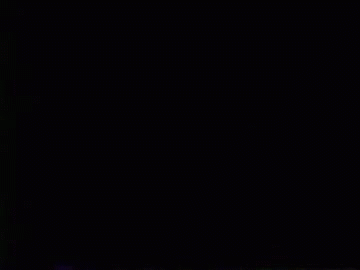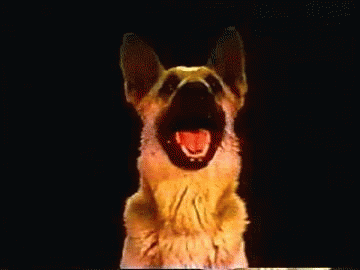“The first show I did was with Jack. He showed a new work—the extraordinary film loop The Jump. I watched that film loop every day for three weeks and never got tried of it. I was hypnotized. I can still see it: The endless red and gold gleaming figure, rotating and tum- bling in a non-space, outside of time and place. It was beautiful and miraculous. I still believe that it was one of Jack’s greatest works; he made it long before the video effects that are available today. It was an absolute vision." - Robert Longo in Jack Goldstein and the CalArts Mafia

Animated GIF from extract of YouTube video of Jack Goldstein, The Jump (1978).
The endlessly repeating moving image loop has become an important means of conveying and digesting information in the digital era, thanks to the animated GIF. Perhaps our new familiarity with loop-based viewing allows us to appreciate anew the films of Jack Goldstein, which, like animated GIFs, comprise short cycles of imagery that engage the viewer through repetition, anticipation and expectation. The GIF presents no new information as it loops; it is the same every time, yet we continue to watch with anticipation - not in anticipation of something new, but of the satisfaction of expectations fulfilled.

Animated GIF from extract of YouTube video of Jack Goldstein, Shane (1975).
In revisiting Goldstein’s films through an eye conditioned by the Internet, it is important to note a crucial distinction between his films and the GIF. GIFs aren't formatted to have a beginning or end; they start when we begin watching, and they stop when we've had enough. In contrast, Goldstein's films are not continuous loops lacking a defined start or finish. They begin with a title screen, and end between one and three minutes later with a fade to black. Goldstein‘s decisions regarding duration were made, at least in some cases, with the predicted attention span of the viewer in mind. In Shane, a German Shepherd sits before a black backdrop, repeatedly barking on command as he looks slightly off camera (at, presumably, a hired dog trainer). In a conversation with Morgan Fisher in 1997, Goldstein stated: "In film time there's a definite point when something becomes boring. At around three minutes you begin to twitch in your chair. Shane is three minutes long.”[1] Maybe in 1975, we could have watched GIFs for three minutes; in the fast-paced reality of 2013, it’s probably more like three seconds.

Animated GIF from extract of YouTube video of Jack Goldstein, Metro-Goldwyn-Mayer (1975).
While Goldstein's films do have endings, they also loop back on themselves. Goldstein's 1975 film Metro-Goldwyn-Mayer appropriates MGM's iconic production logo, a lion surrounded by a gold emblem under the words, "Ars Gratia Artis" (Art for Art's Sake). In its original context, the image lasted a few seconds and announced the beginning of a narrative film; here, it repeats over and over again: "The lion of the MGM logo roars in an endless loop and announces in permanent deferral a film that never actually begins."[2] Goldstein’s film is perpetually beginning without being the beginning of anything.
Thus, Metro-Goldwyn-Mayer--like many animated GIFs today--pits the moving image loop against linear, narrative cinema. Douglass Crimp, in his catalogue essay for Pictures in 1977, could have been talking about many animated GIFs when he wrote of the piece, "The impression of a completed action…combines with a structure of repetition…so that no action is really brought to a closure; the performance or film stops, but it cannot be said to end."[3]
Jack Goldstein X 10,000 is on view at The Jewish Museum in New York through September 29, 2013.
References:
[1] Crimp, Douglass "Controlling Pictures" Jack Goldstein x 10,000 Orange County Museum of Art, DelMonico Books, Munich 2012, p. 51.
[2] Kaiser, Phillip Jack Goldstein x 10,000 Orange County Museum of Art, DelMonico Books, Munich 2012, p. 126
[3] Crimp, Douglass "Pictures" October, Vol. 8 (Spring, 1979) p. 79